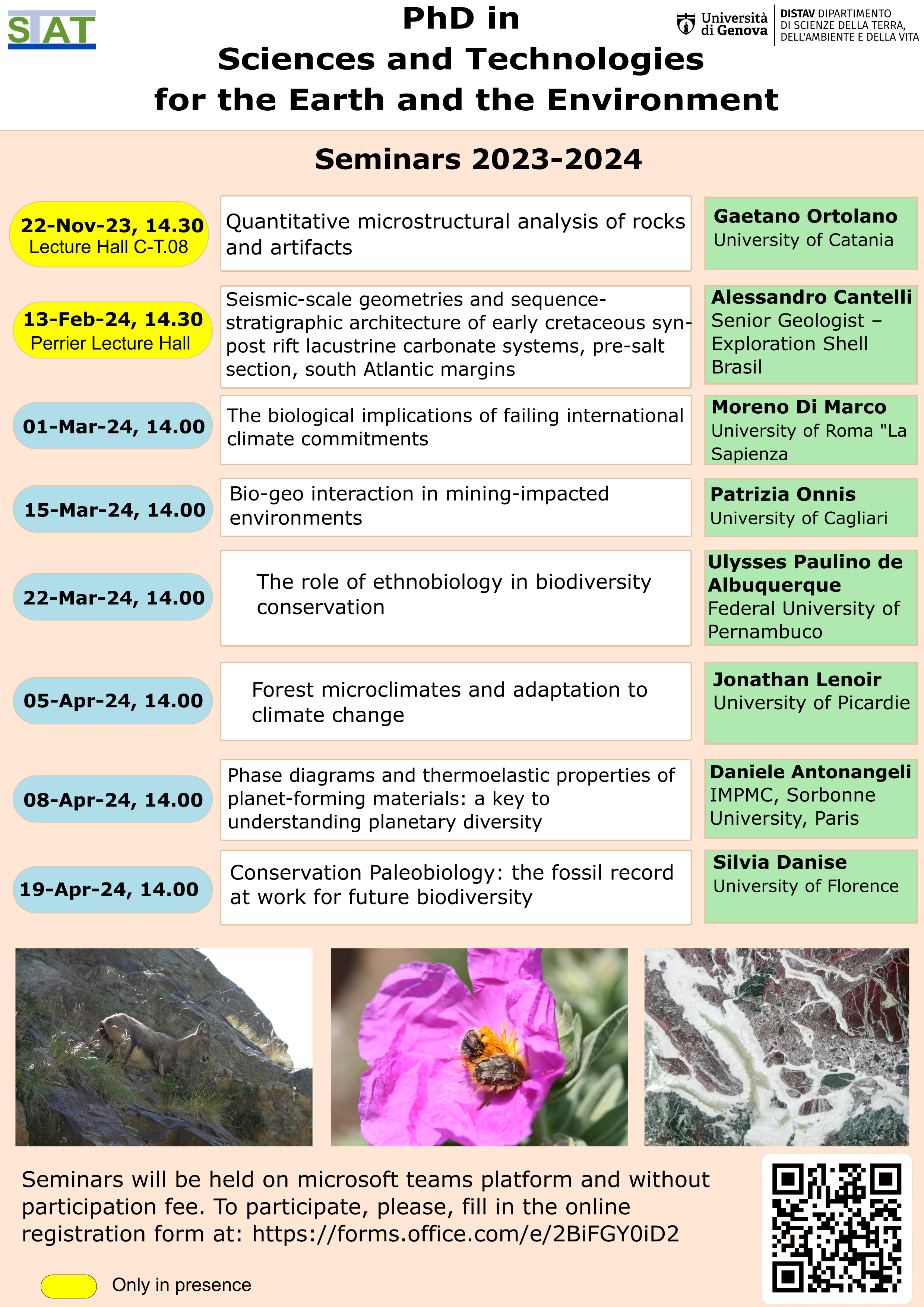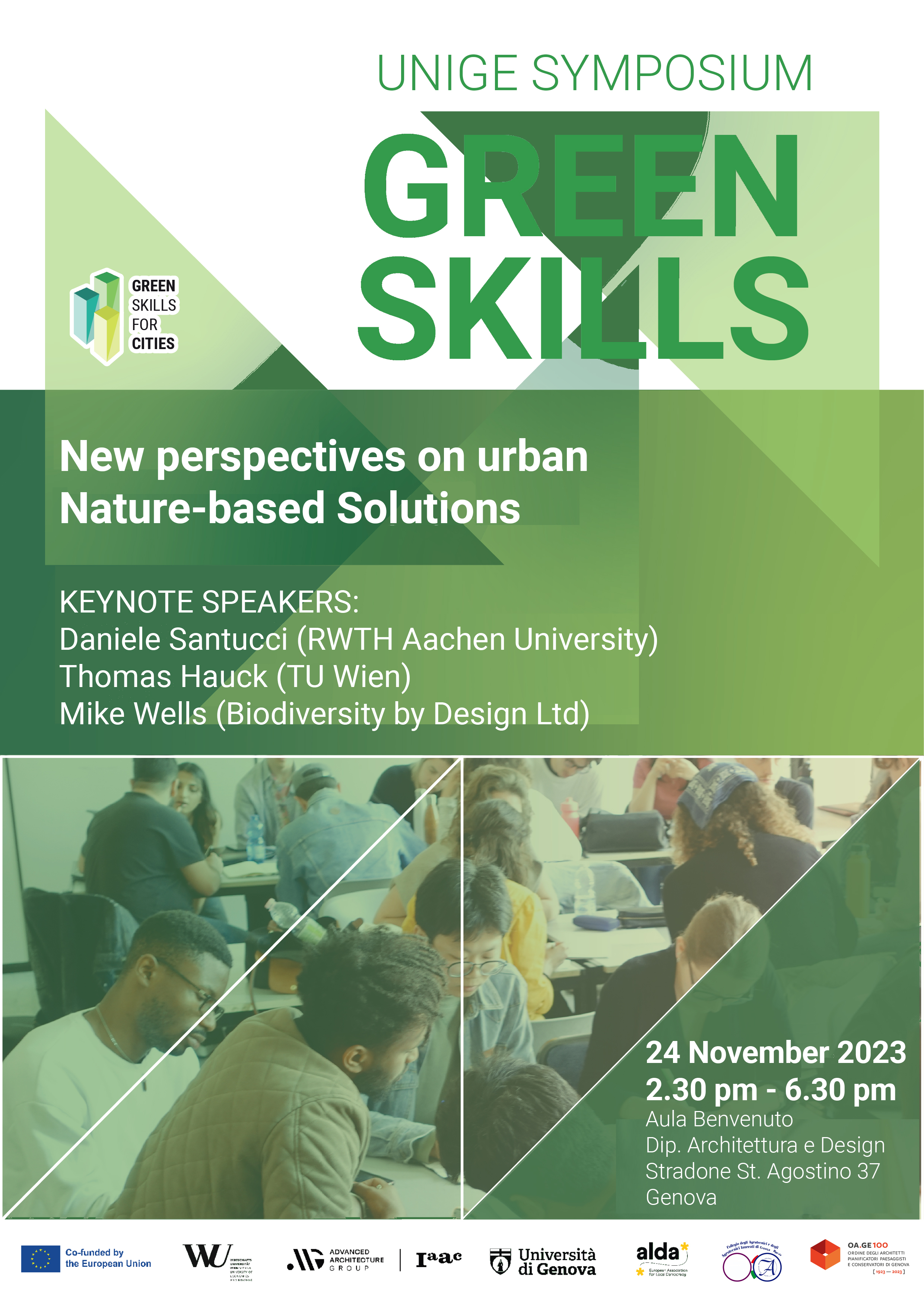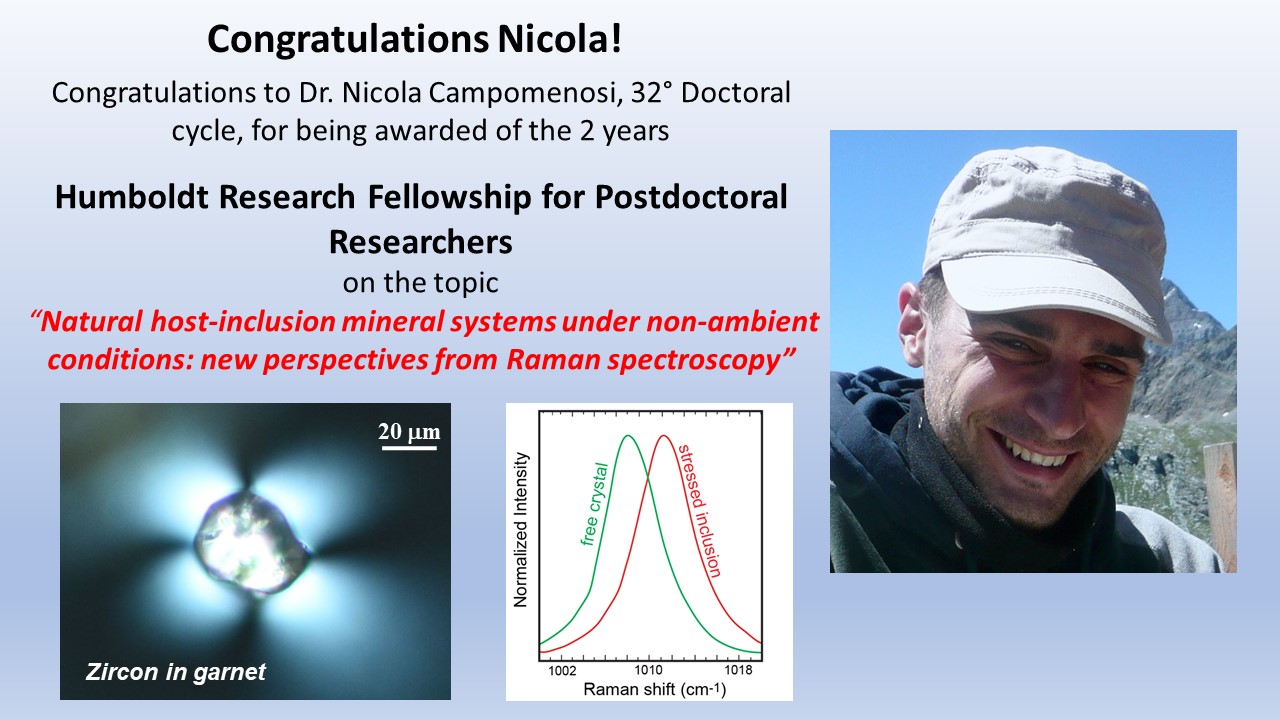Curriculum Biology applied to Agriculture and Environment (Cod. 8253)
N. 2 research themes entirely funded by Università degli Studi di Genova. The candidates have to choose one of the following proposed research themes (Themes N.1-N.4) for the preparation of the research project:
1) Functional characterization of plant cytochromes b561: from ascorbate homeostasis to flowering processes
2) Analysis of the Mediterranean Arthropod biodiversity changes based on funerary archeoentomological investigations
3) Conservation of endemic species of endangered vascular flora, included in Annex 2 of Directive 43/92 (Research topic co-financed by DISTAV within the LIFE Seedforce project)
4) Global Change and effects on the relationship insect/plant within the reproductive biology of endemic species
N. 1 reseacrh theme funded by PNRR DM 351:
5) Last generation Nature-based Solutions to improve the environmental quality of urban areas (DM 351)
N. 2 research themes funded by ANGEL Consulting s.a.s:
6) Safety assessment for aquatic and/or terrestrial organisms of sunscreen UV filters in cosmetic products (reserved for Angelconsulting s.a.s. personnel)
7) Creation and validation of a database of chemical compounds for in silico design of safe cosmetic products (reserved for Angelconsulting s.a.s. personnel).
N. 1 research theme funded by PNRR CN Biodiversità
8) Macroalgal forests restoration in Italy: from the biomolecular monitoring to the mining of bioactive compounds
Further information is available on the PhD website (http://www.distav.unige.it/phdstat/it) or can be requested to:
- Prof. Armando Carpaneto (armando.carpaneto@unige.it) for theme 1
- Prof. Stefano Vanin (stefano.vanin@unige.it) for theme 2
- Prof. Mauro Mariotti (m.mariotti@unige.it) for theme 3
- Prof. Luigi Minuto (luigi.minuto@unige.it) for theme 4
- Prof. Enrica Roccotiello (Enrica.Roccotiello@unige.it) for theme 5 DM351
- Prof. Elena Grasselli (elena.grasselli@unige.it) for themes 6 and 7
- Proff. Sonia Scarfi and Mariachiara Chiantore (soniascarfi@unige.it) for theme 8
Curriculum Earth Sciences (Cod. 8254)
PhD research theme co-funded by DISTAV and other research projects:
1) Theme N.1 - " Reactive melt percolation and impregnation in the Oman mantle peridotites (Samail Ophiolite): petrologic and structural constraints.
N. 2 research themes entirely funded by Università degli Studi di Genova. The candidate has to choose one of the following proposed research themes (Themes N.2-N.5) for the preparation of the research project:
2) Mineralogical and genetic features of secondary phosphates in cave environments
3) Slicing and disruption of the oceanic lithosphere within subduction zones: structural investigations in exhumed HP examples from the western Alps.
4) Study of the geosites and biosites of the Beigua UNESCO Geopark through the application of the concepts of natural capital and ecosystem services
5) Terrestrial heat flow: a tool for geodynamic understanding and geothermal potential assesment.
Further information is available on the PhD website (http://www.distav.unige.it/phdstat/it) or can be requested to:
- Prof. Marco Scambelluri (marco.scambelluri@unige.it)
- Prof. Elisabetta Rampone (elisabetta.rampone@unige.it) for theme 1
- Prof. Cristina Carbone (cristina.carbone@unige.it) for theme 2
- Prof. Laura Federico (laura.federico@unige.it) for theme 3
- Prof. Pietro Marescotti (pietro.marescotti@unige.it) for theme 4
- Prof. Massimo Verdoya (massimo.verdoya@unige.it) for theme 5



